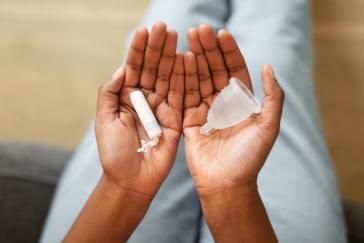Social factors drive use of scented menstrual products tied to health risks
 A new study finds that Black Americans and people with less formal education are more likely to use scented and scent-altering menstrual and intimate care products than other groups. Ingredients used in these products have been linked to allergies, asthma, cancer, endocrine disruption, and poor pregnancy outcomes.
A new study finds that Black Americans and people with less formal education are more likely to use scented and scent-altering menstrual and intimate care products than other groups. Ingredients used in these products have been linked to allergies, asthma, cancer, endocrine disruption, and poor pregnancy outcomes.
The study was led by researchers at Columbia University Mailman School of Public Health, in collaboration with Silent Spring Institute, Occidental College, and Black Women for Wellness. The findings appear in the journal Frontiers in Reproductive Health.
Socioeconomic factors determine attitudes about menstruation and individuals’ use of intimate care products, the authors say. Expectations around odor control disproportionately fall on Black women, who face stereotypes and discrimination related to beauty and hygiene.
“Our research shows how social identity can shape a person’s preference for certain types of menstrual products, which can then influence their chemical exposures. Understanding these dynamics is important for developing strategies to reduce toxic exposures from intimate care products and ultimately reduce health inequities,” says Dr. Elissia Franklin, a postdoctoral research associate at the Silent Spring and a co-author of the study.
Source: Columbia Mailman School of Public Health
Resources or References
Reference:
Zota, A.R., E.T. Franklin, E.B. Weaver, B. Shamasunder, A. Williams, E.L. Siegel, R.E. Dodson. 2023. Examining differences in menstrual and intimate care product use by race/ethnicity and education among menstruating individuals, Frontiers in Reproductive Health. DOI: 10.3389/frph.2023.1286920